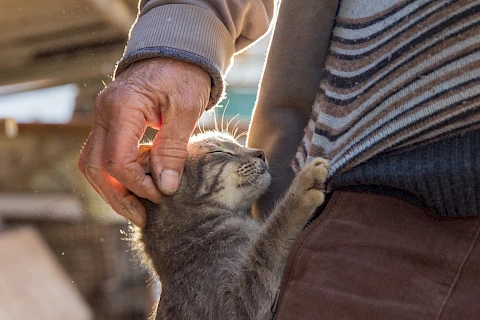
Companionship is about more than just having someone to talk to. It's about having a reliable presence that provides comfort, joy, and a sense of purpose. While family and friends play a crucial role, another form of companionship that has been attracting a lot of attention lately is pet companionship. Discover the remarkable benefits of pet companionship for seniors.
The Benefits of Pet Companionship for Seniors
Pets can bring many benefits to seniors' lives. One of the main advantages is their ability to combat feelings of loneliness, a common issue among the elderly. Pets offer a form of social interaction that can be soothing and reassuring. They're there to share the quiet moments, listen without judgment, and give unconditional love. Studies have shown that spending time with a pet can reduce loneliness and depression.
In addition to providing emotional support, pets can also improve physical health. Pets can be vital in keeping seniors physically engaged and promoting an active lifestyle. Caring for a pet often involves some degree of physical activity, such as walking a dog, playing with a cat, or cleaning a birdcage. These activities can help seniors stay active, improve cardiovascular health, and maintain a healthy weight. Seniors should talk with their doctor before starting any new fitness regimen or activity.
Pets also have a remarkable ability to improve mood and mental health. The simple act of petting an animal has been shown to lower stress levels and blood pressure. The companionship and affection pets provide can also help lift spirits and foster a positive mental outlook.
Choosing the Right Pet for Seniors
Choosing the right pet is crucial to ensure a positive pet companionship experience. Seniors must take into account their lifestyle, health, and ability. Dogs could be an excellent option for seniors who lead active lives and have a spacious living environment. On the other hand, cats, which require less activity but still provide companionship, could be ideal for those with more limited mobility or living in an apartment.
When adopting a pet, seniors need to consider their physical capabilities. Caring for a large dog, for example, might be too demanding. Older pets can often be a good match for seniors; they require less physical activity and are frequently already trained.
Moreover, adopting pets from shelters can be incredibly rewarding. Many older pets in shelters need a home and can make a loving addition to a senior's life.
Tips for Responsible Pet Ownership for Seniors
After adopting a pet, ensure proper care for these new companions. Regular vet check-ups are vital to monitor pet health and address issues early. As with humans, early detection of health issues can lead to more effective treatment.
The basics of pet care—providing nutritious food, ensuring regular exercise, and maintaining good hygiene—are equally important. However, seniors should also plan for unforeseen circumstances. Making arrangements for pet care in the event of a senior's illness or passing can give peace of mind and ensure the pet's well-being is taken care of.
Want to Bring a Pet Into Your Senior Love One's Life?
Pet companionship can offer numerous benefits for seniors, from reducing loneliness to promoting an active lifestyle and improving mood. However, to make the most of this companionship, it's important to choose the right pet and ensure they are well cared for.
At Senior Helpers Charlotte, we're dedicated to improving the lives of seniors in Charlotte, Pineville, and Concord, NC. If you're considering pet companionship or looking for additional support in your golden years, contact us for more information.